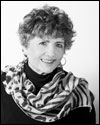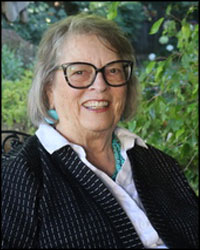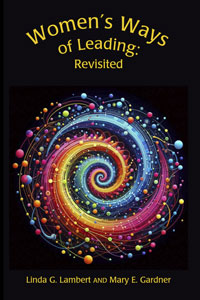« Don’t miss the ride of your life—Starting July 23, The Cairo Codex e-book goes on sale for only $1.99 and includes the beginning chapters of the next book in the Justine Trilogy: The Italian Letters. | I’m Excited about Tomorrow! Why? »
My Memories of Maxine Greene
This letter was published in Dear Maxine: letters from an infinished conversation, Robert Lake (Ed.) Teachers College Press, 2010.
Remembering Maxine
Philosopher, Educator, Author, Friend
“Remember not to bow, not to submit, to choose, to be and to become.”
-Maxine Greene
Dear Maxine,
When I was a junior high principal in the early eighties, I vividly recall a presentation that you made in Santa Rosa, California. I was already excited by your writings that brilliantly folded literature and philosophy into the work of education. So you can imagine how delighted I was when I learned that you needed a ride back to San Francisco. A friendship began on that day that has lasted more than a quarter century.
Over these many years, we’ve met at AERA, exchanged letters and stole time for short visits. I visited your classes at Columbia and understood how a small item in the morning paper could frame a searching discussion on social justice. On the eve of my move to Egypt in 1989, we had dinner at a Chinese restaurant in San Francisco and you said to me: “Remember, Egypt has not experienced an Enlightenment.” Often a seemingly small observation from you could focus my thinking about the tasks ahead. Realizing that I had a rare opportunity to affect the fundamental schemas of the younger generations in Egypt, I designed the work in those next years to focus on building understandings of self-directed learning and democratic instructional practices.
Then in 1992, I brought my daughter April and two-year old granddaughter Chloe to your home in New York for tea. You were generous with advice to my daughter, then in her first years of teaching. April became the teacher we both can be proud of; Chloe, now 19, is at the University of Oregon preparing to become a teacher.
In 1994, when I wrote my first book, The Constructivist Leader, you composed the Foreword. You eloquently celebrated the democratization of leadership, realizing that the “constructivist leader” I envisioned is one who engages self and others in reciprocal, purposeful learning within community. Such acts of leadership involve inquiry, reflection, dialogue and action. You noted that it does not mean taking charge, directing, commanding and subjugating others. Clearly, my conception of leadership was substantially borne of the ideas learned from you.
Coming of age in the 1950’s in the Midwest, I could profoundly identify with your life as a pilgrim and a woman on a quest of becoming. Although not during the same historical moments or with the same ethnic identity, in many ways our life struggles paralleled each other. Your efforts to carve the self from the challenge of being a Jewish woman and mother of two children amidst the prejudices found in the professional world inspired my own journey. I graduated from college in 1966, the same year that you were hired as the first female philosopher at Teachers College.
Over the following decades, your persistence and imagination have helped me understand the nature of my own quest for selfhood.
From my perspective, two complementary pathways played vital roles in your construction of the woman who is now recognized by many as the most important American philosopher since John Dewey. (I can almost feel your modest rebuttal of this label.) The first path was paved with an intentional and enlightened philosophy of being. The second path suggests how consciousness can be awakened in others. This awakening, or releasing of the imagination, defines learning in its most powerful forms. Releasing the Imagination has had the most important impact on me of all of your writings.
Your belief that ideas worth learning have the capacity to awaken also laid the foundation for my latest book (with co-author, Mary Gardner), Women’s Ways of Leading. You’ve reminded us that we must awaken to the compelling need to build a just, compassionate, and meaningful democracy. To me, this is leadership, although I realize that you are reluctant to acknowledge yourself as a leader. Perhaps this is a result of your deep sense of humility.
To continue with your notion of being, I understand that the attitude of wide-awakeness develops and contributes to the choice of actions that lead to self-formation through a vision of constructing the self and the world. We share an understanding of one of the major goals of education: to nurture intellectual talents for the formation of our society into a more democratic, just and caring place.
Further, you’ve argued that aesthetic experiences, such as the arts, lead to a defamiliarization of the ordinary, creating a metaphorical distance from the dailiness of life, thereby enabling us to reframe our perceptions of the world. These sensitivities are essential in order for students and their teachers to create meaning in their lives. Indeed, those who teach—as well as those who lead learning––ought to be “those who have learned the importance of becoming reflective enough to think about their own thinking and become conscious of their own consciousness.”
Democracy, you’ve insisted, is a way of life, not just a form of government. This democratic way of life recognizes the capacity of everyone to choose, to act, to construct one’s own life––to lead. “The wonderful part about being a teacher,” you once said, “is that we can free people to move toward an achievement of their own freedom, of their own expression, of their own pain, of their own hopes.”
You have mentored me through your friendship, teaching, storytelling, aesthetic sensibilities and writings. Powerful words, your words, contain meaning, emotion, and music. I want you to know and remember, Maxine, that your combination of values, consciousness, passion and imagination have informed my life, as it will others for generations to come. For this I am profoundly grateful. You often refer to me lovingly as ‘your Linda.’ And so I am.
With love, Linda Lambert
Leave a Reply



 Mary Gardner, a retired educator, has dedicated much of her life to learning and leading. She was a teacher, administrator, researcher, and continues to be a writer, mentor and consultant. She and Linda are known for their original work in reframing leadership. Their latest book is Women’s Ways of Leading: Revisited.
Mary Gardner, a retired educator, has dedicated much of her life to learning and leading. She was a teacher, administrator, researcher, and continues to be a writer, mentor and consultant. She and Linda are known for their original work in reframing leadership. Their latest book is Women’s Ways of Leading: Revisited.